The question of whether individuals in the field of aerospace engineering can accumulate substantial wealth is a common consideration for those entering or considering this profession. Factors such as education, specialization, career path, and investment strategies play a significant role in determining potential financial success. For example, an aerospace engineer specializing in a high-demand area like propulsion systems and ascending to a management position might have a greater earning potential than an engineer focused on research with limited commercial applications.
The appeal of financial independence through one’s career is understandable. Historically, engineering professions have offered stable employment and decent salaries. However, achieving millionaire status typically requires going beyond simply earning a salary. Strategic career planning, entrepreneurial ventures, or wise investing are often necessary. It is also important to consider the time horizon required; wealth accumulation typically takes place over a career, not within a few years of graduation.
The discussion will now transition to various aspects that influence the financial trajectory of an aerospace engineer, including starting salaries, career progression, the impact of advanced degrees, the possibilities for entrepreneurship, and the role of strategic investment in achieving long-term financial goals. These elements will provide a comprehensive overview of the opportunities and challenges involved in building significant wealth within this field.
Strategies for Financial Success in Aerospace Engineering
The following outlines practical strategies aerospace engineers can implement to improve their potential for significant wealth accumulation. These are not guarantees, but rather, informed approaches based on typical career paths and financial best practices.
Tip 1: Specialize in High-Demand Areas: Focus on areas within aerospace engineering experiencing rapid growth and high demand, such as autonomous systems, space exploration, or advanced materials. These specializations often command higher salaries and offer more opportunities for advancement.
Tip 2: Pursue Advanced Education Strategically: While an advanced degree does not guarantee wealth, a Master’s degree or PhD in a specialized area can open doors to higher-paying research positions, management roles, and specialized consulting opportunities. Evaluate the return on investment for different programs based on career goals.
Tip 3: Seek Leadership and Management Roles: Transitioning into leadership or management positions within aerospace companies offers the potential for significantly higher earnings than solely focusing on technical engineering tasks. Develop leadership skills through workshops, professional organizations, and on-the-job experiences.
Tip 4: Explore Entrepreneurial Ventures: Consider starting a company focused on aerospace-related products or services. This could include developing innovative technologies, offering specialized consulting, or creating niche products for the aerospace market. Be aware that entrepreneurship involves significant risk and requires careful planning.
Tip 5: Invest Early and Consistently: Begin investing in diversified portfolios as early as possible, utilizing tax-advantaged accounts like 401(k)s and IRAs. Consistent investment, even in small amounts, can accumulate significantly over time due to the power of compounding. Seek advice from a qualified financial advisor.
Tip 6: Develop Strong Financial Literacy: Educate yourself on personal finance, investing, and wealth management. Understand the concepts of budgeting, saving, debt management, and asset allocation. This knowledge is crucial for making informed financial decisions throughout your career.
Tip 7: Network and Build Relationships: Building a strong professional network can lead to new job opportunities, business partnerships, and investment possibilities. Attend industry conferences, join professional organizations, and connect with other professionals in the aerospace field.
These strategies, when combined with hard work, dedication, and a bit of good fortune, can significantly increase an aerospace engineer’s prospects for achieving financial success. Remember that wealth accumulation is a long-term process that requires consistent effort and discipline.
The article will now provide some conclusion points, including long-term benefits and future perspectives of becoming millionaire.
1. Education & Specialization
The level and focus of education significantly influence an aerospace engineer’s potential to accumulate substantial wealth. Specialized knowledge in high-demand areas can command higher salaries and create opportunities for lucrative consulting or entrepreneurial ventures.
- Advanced Degrees and Earning Potential
Possessing a Master’s degree or a Ph.D. in a niche area of aerospace engineering, such as advanced propulsion systems or autonomous aircraft, often translates to higher starting salaries and more rapid career advancement. Companies are willing to pay a premium for engineers with expertise in cutting-edge technologies.
- Specialization in Emerging Technologies
Focusing on rapidly developing fields like space exploration, drone technology, or sustainable aviation fuels provides a competitive advantage. Engineers with expertise in these areas are highly sought after, leading to increased job security and higher compensation.
- Interdisciplinary Education and Versatility
Combining aerospace engineering with other disciplines, such as computer science, materials science, or business administration, can broaden career opportunities and increase earning potential. These interdisciplinary skills are valuable in areas like system integration, product development, and project management.
- Continuous Learning and Skill Development
The aerospace industry is constantly evolving, requiring engineers to continuously update their skills and knowledge. Participating in professional development courses, attending conferences, and obtaining certifications can enhance expertise and increase earning potential throughout a career.
The acquisition of advanced education and specialized skills serves as a foundational element for aerospace engineers seeking to attain financial independence. Strategic educational investments and focused specializations offer a pathway to higher salaries, leadership positions, and entrepreneurial opportunities, ultimately increasing the likelihood of achieving millionaire status over the course of a career.
2. Strategic Career Choices
Strategic career choices significantly influence an aerospace engineer’s capacity to amass wealth. Active career management, including role selection, company affiliation, and skill development, directly correlates with long-term financial success within this profession.
- Ascending into Management Roles
Transitioning from a purely technical engineering role to a management position often leads to a substantial increase in income. Managerial responsibilities typically involve overseeing projects, leading teams, and making strategic decisions, which are compensated at a higher rate. This progression can significantly accelerate wealth accumulation.
- Selecting High-Growth Companies
Joining aerospace companies experiencing rapid growth or those focused on innovative technologies presents greater opportunities for career advancement and increased compensation. These organizations often offer stock options or performance-based bonuses, which can contribute substantially to wealth creation. Conversely, employment with stagnant companies might limit financial potential.
- Diversifying Skill Sets and Expertise
Developing expertise in multiple areas of aerospace engineering, or acquiring complementary skills in fields like business administration or project management, enhances career flexibility and earning potential. Engineers with a broad skillset are more likely to be promoted to leadership positions or to secure consulting roles.
- Relocating for Career Advancement
Willingness to relocate to areas with higher demand for aerospace engineers or to accept positions in regions with lower cost of living can positively impact financial prospects. Areas with significant aerospace industries often offer higher salaries, while lower living expenses allow for greater savings and investment.
Strategic career choices are pivotal in determining the financial trajectory of an aerospace engineer. Proactive career management, including pursuing leadership roles, aligning with high-growth companies, expanding skill sets, and considering geographic relocation, can significantly enhance wealth accumulation prospects within this profession.
3. Investment Acumen
Investment acumen, the ability to make sound and profitable financial decisions, is a critical determinant in whether an aerospace engineer achieves millionaire status. While a strong salary provides a foundation, investment skill transforms earnings into substantial wealth. Effective investing allows an engineer to leverage income and savings to generate additional income through capital appreciation, dividends, and other investment returns. Without investment acumen, even a high-earning engineer may struggle to accumulate significant wealth due to factors such as inflation, poor investment choices, or excessive spending. Consider the example of two aerospace engineers with similar salaries; the engineer who consistently invests in a diversified portfolio and makes informed financial decisions is far more likely to achieve millionaire status than the engineer who simply saves without a strategic investment plan.
The practical application of investment acumen involves several key elements. These include understanding different asset classes, such as stocks, bonds, and real estate; developing a risk tolerance profile; creating a diversified investment portfolio; and regularly monitoring and adjusting that portfolio based on market conditions and personal financial goals. Aerospace engineers, with their strong analytical skills, are well-positioned to develop the necessary investment acumen through self-study, professional development courses, or by consulting with a qualified financial advisor. Furthermore, understanding tax-advantaged investment strategies, such as 401(k)s and IRAs, is crucial for maximizing investment returns and minimizing tax liabilities. Neglecting these aspects can significantly hinder wealth accumulation, even with a solid investment plan.
In conclusion, investment acumen is not merely an optional skill but a fundamental requirement for aerospace engineers aiming for millionaire status. It bridges the gap between earning a high salary and building substantial wealth over time. While the aerospace engineering profession provides a solid income foundation, the ability to strategically invest and manage finances is the catalyst that transforms earnings into long-term financial security and wealth accumulation. Therefore, developing and honing investment acumen is an essential component of achieving significant financial success in the field of aerospace engineering.
4. Entrepreneurial Opportunities
Entrepreneurial ventures represent a significant, albeit challenging, pathway for aerospace engineers seeking to accumulate substantial wealth. While a traditional career path offers stability and a steady income, entrepreneurship presents the potential for exponential financial growth exceeding that typically attainable through salary alone.
- Starting Specialized Consulting Services
Aerospace engineers with expertise in niche areas, such as regulatory compliance, system optimization, or advanced materials, can establish consulting firms. These firms provide specialized services to aerospace companies lacking in-house expertise, generating substantial revenue based on project fees and hourly rates. For instance, an engineer specializing in FAA certification can offer consulting services to smaller aerospace companies, filling a critical need and commanding high fees. This allows for direct correlation to financial increase.
- Developing Innovative Aerospace Technologies
The aerospace industry is constantly evolving, creating opportunities for entrepreneurs to develop and commercialize new technologies. This may involve designing and manufacturing specialized components, creating software solutions for aerospace applications, or developing unmanned aerial vehicle (UAV) systems. Successful commercialization of such innovations can result in significant financial returns through licensing agreements, product sales, or acquisition by larger aerospace companies. This can greatly increase financial success.
- Creating Niche Aerospace Products
Identifying and addressing unmet needs in the aerospace market can lead to lucrative entrepreneurial ventures. This may involve developing specialized tools, equipment, or software for aircraft maintenance, pilot training, or space exploration. A focus on underserved markets or unique product offerings can create a competitive advantage and generate substantial revenue. This includes a strong product that cannot be found at similar company.
- Founding Aerospace Education and Training Programs
With the aerospace industry constantly growing, educational and training services are in high demand. Starting an educational training programs focusing on aviation, engineering, or technical trades can offer a stable and profitable revenue stream. This includes course for engineers or pilots that need to be updated to the latest and safety regulations. These programs can be offered online or in-person, providing high-quality educational services while offering multiple avenues for financial investment.
The potential for financial gain through entrepreneurial opportunities within the aerospace sector is substantial. By leveraging their technical expertise, identifying market needs, and developing innovative solutions, aerospace engineers can create successful businesses that generate significant wealth, surpassing the financial limitations of traditional employment.
5. Market Demand Influence
Market demand exerts a significant influence on the earning potential of aerospace engineers, thereby affecting their ability to accumulate substantial wealth. The aerospace industry is subject to cyclical fluctuations and technological advancements, which directly impact the demand for specific engineering skills and expertise. A surge in demand for engineers specializing in areas such as sustainable aviation, space exploration, or autonomous systems translates to higher salaries and greater job opportunities. Conversely, a decline in demand for engineers with outdated skill sets can lead to reduced earning potential and limited career advancement. Therefore, the ability to anticipate and adapt to changing market demands is a crucial factor in determining an aerospace engineer’s long-term financial success.
Understanding the connection between market demand and financial outcomes necessitates a proactive approach to career development. Aerospace engineers must continuously monitor industry trends, identify emerging technologies, and acquire the necessary skills to remain competitive. This may involve pursuing advanced degrees, obtaining specialized certifications, or engaging in continuous learning through professional development courses. For example, the increased focus on electric propulsion systems in the aerospace industry has created a high demand for engineers with expertise in battery technology, electric motor design, and power electronics. Engineers who proactively develop these skills are well-positioned to command higher salaries and secure more lucrative job opportunities. A recent industry analysis showed a 30% increase in salaries for aerospace engineers specializing in sustainable aviation technologies compared to those with general aerospace engineering backgrounds.
In conclusion, market demand acts as a powerful determinant of an aerospace engineer’s ability to achieve millionaire status. By staying abreast of industry trends, proactively acquiring in-demand skills, and adapting to evolving technological landscapes, aerospace engineers can significantly enhance their earning potential and increase their chances of accumulating substantial wealth over the course of their careers. Ignoring the influence of market demand, on the other hand, can lead to stagnation and diminished financial prospects. Therefore, a strategic approach to career development, guided by market insights, is essential for aerospace engineers aspiring to achieve long-term financial success.
6. Geographic Considerations
Geographic location is a critical factor influencing an aerospace engineer’s potential for wealth accumulation. Certain regions, characterized by a high concentration of aerospace companies, research institutions, and government agencies, offer significantly greater employment opportunities and higher salary levels compared to areas with limited aerospace activity. The presence of major aerospace hubs creates a competitive job market, driving up compensation packages and providing access to a wider range of career advancement prospects. For example, an aerospace engineer working in Southern California, home to numerous aerospace giants and research facilities, is likely to earn a substantially higher salary than a similarly qualified engineer in a region with fewer aerospace employers. This disparity in earning potential directly impacts the ability to save and invest, a crucial component of achieving millionaire status.
Beyond salary differences, geographic location affects the cost of living, which further influences wealth accumulation. Regions with high concentrations of aerospace activity, such as Seattle, Washington, or Huntsville, Alabama, often have higher housing costs and overall expenses. An engineer earning a higher salary in a high-cost area may have less disposable income for savings and investments compared to an engineer earning a slightly lower salary in a more affordable location. Furthermore, geographic proximity to venture capital firms and entrepreneurial ecosystems can provide access to funding and mentorship opportunities, facilitating the development of successful aerospace-related startups. The success of such ventures can lead to substantial financial gains through equity ownership or acquisition.
In conclusion, geographic location plays a pivotal role in determining the financial trajectory of an aerospace engineer. The concentration of aerospace activity, salary levels, cost of living, and access to entrepreneurial resources all contribute to the potential for wealth accumulation. Aerospace engineers seeking to maximize their earning potential and achieve millionaire status should strategically consider geographic factors when making career decisions, recognizing that location can significantly impact both income and expenses, ultimately influencing their long-term financial success.
7. Risk Tolerance
Risk tolerance, an individual’s capacity to withstand potential financial losses in pursuit of higher returns, is inextricably linked to the probability of an aerospace engineer achieving millionaire status. This tolerance influences investment decisions, career choices, and entrepreneurial pursuits, each of which can significantly impact wealth accumulation. An engineer with a low-risk tolerance may prioritize job security and stable investments, potentially limiting their earning potential. Conversely, an engineer with a high-risk tolerance may pursue entrepreneurial ventures or invest in more volatile assets, increasing the potential for substantial gains, but also the possibility of significant losses. For example, an aerospace engineer who invests primarily in government bonds demonstrates a low-risk tolerance, prioritizing capital preservation over high returns. Another engineer, choosing to invest in a start-up aerospace company, exhibits a higher-risk tolerance, hoping for substantial returns but accepting the risk of losing the investment.
Further, risk tolerance affects career decisions within the aerospace industry. An engineer with a low-risk profile might prefer a secure position within a large, established company, accepting a moderate salary in exchange for job stability. This engineer may be less inclined to pursue promotions that involve increased responsibility or to relocate to regions with higher earning potential but less job security. In contrast, an engineer with a higher-risk tolerance might be willing to leave a stable position to join a smaller, more innovative company, accepting the risk of potential layoffs in exchange for the opportunity to gain valuable experience in emerging technologies and potentially earn stock options that could yield substantial financial rewards. This trade-off between security and potential reward is a constant consideration, and individual risk tolerance plays a pivotal role in determining which path is chosen. Financial professionals, who themselves would be aerospace engineers, need to decide what they want to do for their future investments.
In conclusion, understanding one’s own risk tolerance is essential for aerospace engineers seeking to maximize their potential for wealth accumulation. It informs investment strategies, career choices, and entrepreneurial decisions, each of which contributes to the overall financial trajectory. A balanced approach, considering both the potential rewards and the associated risks, is crucial. While a high-risk tolerance can lead to substantial gains, it also carries the potential for significant losses. Conversely, a low-risk tolerance provides stability but may limit opportunities for rapid wealth accumulation. The optimal strategy is a personalized one, aligned with individual financial goals, time horizons, and psychological comfort levels. Ignoring the influence of risk tolerance can lead to suboptimal financial outcomes and hinder the achievement of millionaire status.
Frequently Asked Questions
The following addresses common inquiries regarding the potential for significant wealth accumulation within the aerospace engineering profession. These questions are answered with a focus on providing clear, factual information.
Question 1: What is the typical timeframe for an aerospace engineer to accumulate a million dollars?
The timeframe varies significantly based on factors such as starting salary, career progression, investment strategies, and lifestyle choices. It generally requires a career spanning several decades, coupled with consistent savings and strategic investments.
Question 2: Does an advanced degree guarantee a higher likelihood of becoming a millionaire as an aerospace engineer?
An advanced degree does not guarantee millionaire status. However, it can open doors to higher-paying positions, specialized consulting opportunities, and leadership roles, thereby increasing earning potential and facilitating wealth accumulation.
Question 3: What are the most lucrative specializations within aerospace engineering in terms of potential wealth accumulation?
Specializations in high-demand areas, such as autonomous systems, space exploration, sustainable aviation, and advanced materials, often command higher salaries and offer greater opportunities for career advancement, leading to enhanced financial prospects.
Question 4: Is it necessary for an aerospace engineer to pursue entrepreneurship to become a millionaire?
Entrepreneurship is not a mandatory path to millionaire status, but it presents a potentially faster route to wealth accumulation compared to traditional employment. However, it also involves significant risk and requires a substantial commitment of time and resources.
Question 5: What role does geographic location play in the potential for an aerospace engineer to become a millionaire?
Geographic location is a significant factor. Areas with a high concentration of aerospace companies and research institutions typically offer higher salaries and greater job opportunities, facilitating wealth accumulation.
Question 6: What are the most common financial mistakes that can hinder an aerospace engineer’s ability to become a millionaire?
Common financial mistakes include delaying investment, failing to diversify investments, incurring excessive debt, neglecting financial planning, and lacking financial literacy. Avoiding these pitfalls is crucial for long-term financial success.
In summary, while there are no guarantees, aerospace engineers can enhance their prospects for significant wealth accumulation through strategic career planning, continuous skill development, prudent financial management, and informed investment decisions.
The following article section explores actionable steps and resources to improve financial literacy.
Conclusion
The preceding discussion has explored various factors influencing whether one working as an aerospace engineer can become a millionaire. The analysis revealed that achieving this financial milestone hinges on a combination of strategic career choices, continuous skill development, astute investment strategies, and, for some, entrepreneurial endeavors. The confluence of specialization in high-demand areas, proactive career management, and geographic awareness significantly impacts earning potential. Moreover, the cultivation of investment acumen and a realistic assessment of risk tolerance are essential for translating income into substantial wealth.
Ultimately, the path to significant wealth in aerospace engineering is not guaranteed, but rather, a product of informed decisions and diligent execution. While the profession provides a solid foundation, the ability to strategically leverage opportunities and manage finances is paramount. Aspirants are encouraged to prioritize financial literacy, proactively manage their careers, and remain adaptable to the evolving demands of the aerospace industry. The potential for financial success exists, but its realization requires commitment, planning, and informed action.


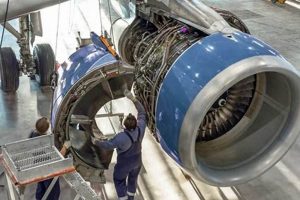
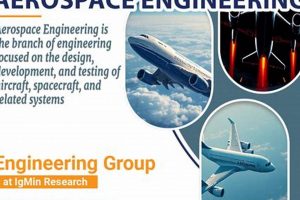
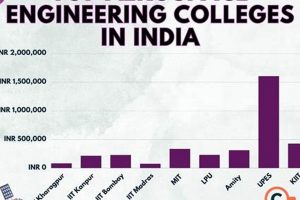
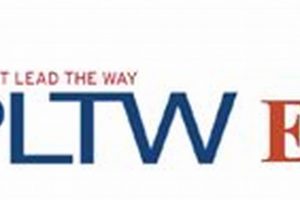
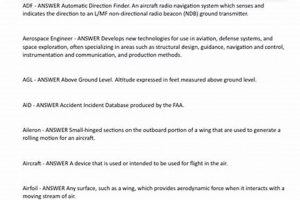
![Best Top Aerospace Engineering Colleges in the US [Rankings] Innovating the Future of Flight with Reliable Aviation Solutions Best Top Aerospace Engineering Colleges in the US [Rankings] | Innovating the Future of Flight with Reliable Aviation Solutions](https://mixaerospace.com/wp-content/uploads/2026/02/th-747-300x200.jpg)